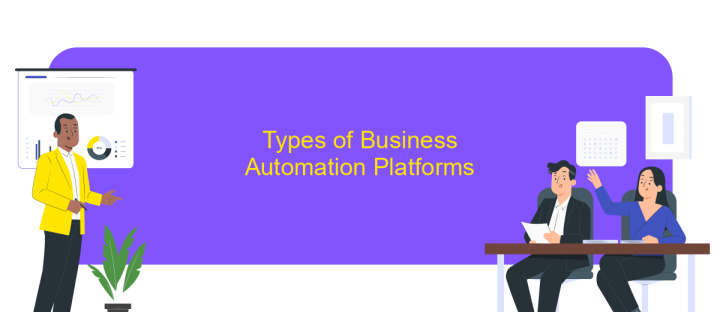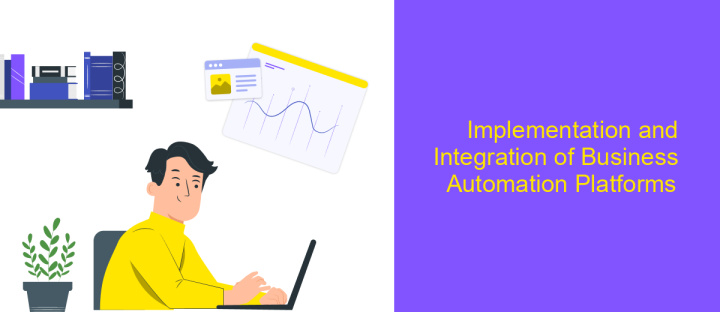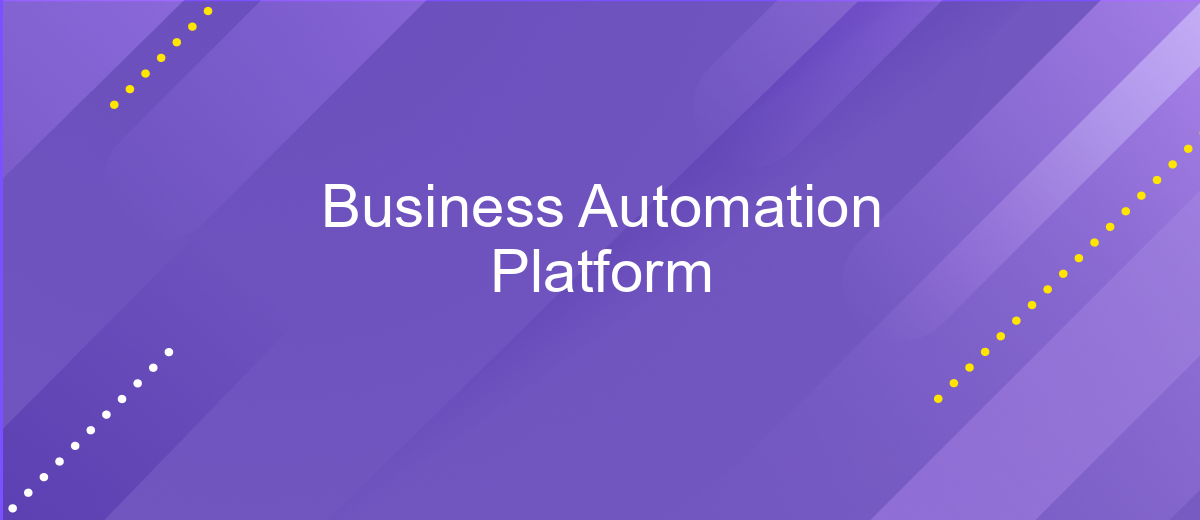Business Automation Platform
In today's fast-paced business environment, efficiency and productivity are paramount. A Business Automation Platform streamlines operations by automating repetitive tasks, reducing human error, and freeing up valuable time for strategic decision-making. This transformative technology not only enhances workflow efficiency but also drives innovation, enabling businesses to stay competitive and agile in a rapidly evolving market.
Introduction: Defining Business Automation Platforms
Business Automation Platforms (BAPs) are comprehensive software solutions designed to streamline and optimize business processes by automating repetitive tasks and workflows. These platforms integrate various tools and technologies to improve efficiency, reduce human error, and enhance productivity across different organizational functions.
- Workflow Automation: Streamlines tasks and approvals.
- Data Integration: Combines data from multiple sources.
- Analytics and Reporting: Provides insights and performance metrics.
- Customer Relationship Management (CRM): Enhances customer interactions.
- Enterprise Resource Planning (ERP): Manages core business processes.
By leveraging BAPs, businesses can achieve significant operational improvements, allowing employees to focus on more strategic activities. These platforms are essential for companies looking to stay competitive in today's fast-paced market environment, offering scalable solutions that can adapt to evolving business needs.
Benefits and Capabilities of Business Automation Platforms

Business automation platforms offer numerous benefits, including increased efficiency, reduced operational costs, and enhanced accuracy. By automating repetitive tasks, these platforms free up valuable time for employees to focus on strategic activities. Additionally, automation minimizes human errors, ensuring more reliable outcomes and better data integrity. The scalability of these platforms allows businesses to grow without the need for proportional increases in manual labor, making them a cost-effective solution for expanding enterprises.
One of the key capabilities of business automation platforms is their ability to integrate with various systems and applications seamlessly. Services like ApiX-Drive facilitate these integrations by providing a user-friendly interface to connect different software solutions without requiring extensive technical expertise. This enables businesses to streamline their workflows and maintain a cohesive ecosystem of tools. Furthermore, the real-time data synchronization offered by such integrations ensures that all departments have access to up-to-date information, fostering better decision-making and collaboration across the organization.
Types of Business Automation Platforms

Business automation platforms come in various types, each designed to address specific needs and functions within an organization. These platforms streamline operations, enhance productivity, and reduce manual intervention, making them invaluable assets for modern businesses.
- Workflow Automation Platforms: These platforms focus on automating routine tasks and processes, allowing employees to concentrate on more strategic activities.
- Robotic Process Automation (RPA): RPA utilizes software robots to mimic human actions, automating repetitive tasks such as data entry and processing.
- Customer Relationship Management (CRM) Systems: These platforms automate customer interactions, sales processes, and marketing campaigns, improving customer engagement and retention.
- Enterprise Resource Planning (ERP) Systems: ERP platforms integrate various business functions like finance, HR, and supply chain management into a single system, enhancing overall efficiency.
- Business Process Management (BPM) Suites: BPM suites provide tools for modeling, analyzing, and optimizing business processes, ensuring continuous improvement and agility.
Choosing the right type of business automation platform depends on the specific needs and goals of your organization. By leveraging these platforms, businesses can achieve significant improvements in efficiency, accuracy, and overall performance.
Implementation and Integration of Business Automation Platforms

Implementing a Business Automation Platform (BAP) begins with a comprehensive assessment of existing workflows and systems. This phase involves identifying repetitive tasks, bottlenecks, and areas that could benefit from automation. By understanding the current state, businesses can tailor the platform to meet their specific needs, ensuring a more effective integration process.
Once the assessment is complete, the next step is to select the appropriate tools and technologies that align with the company's objectives. Integration with existing software systems is crucial for seamless operation. This may involve API integrations, data migration, and ensuring compatibility with current IT infrastructure.
- Evaluate current workflows and systems
- Select suitable tools and technologies
- Ensure compatibility with existing infrastructure
- Perform API integrations and data migration
- Test and refine the automated processes
The final phase involves rigorous testing and refinement of the automated processes. This ensures that the BAP functions as intended and delivers the desired outcomes. Continuous monitoring and optimization are essential to adapt to changing business needs and to maximize the benefits of the automation platform.
- Automate the work of an online store or landing
- Empower through integration
- Don't spend money on programmers and integrators
- Save time by automating routine tasks
Conclusion: The Future of Business Automation
The future of business automation is poised to revolutionize the way companies operate, driving efficiency and innovation across industries. As technology continues to advance, businesses will increasingly rely on sophisticated automation platforms to streamline processes, reduce human error, and enhance productivity. These platforms will integrate seamlessly with existing systems, leveraging AI and machine learning to provide real-time insights and predictive analytics. This will enable companies to make data-driven decisions, optimize workflows, and stay competitive in an ever-evolving market.
One key aspect of future business automation is the integration of diverse applications and services. Tools like ApiX-Drive will play a crucial role in this landscape, offering easy-to-use solutions for connecting various systems without the need for extensive coding knowledge. By facilitating seamless data exchange between platforms, ApiX-Drive will help businesses automate routine tasks, improve communication, and achieve greater operational efficiency. As a result, companies will be better equipped to focus on strategic initiatives, foster innovation, and drive sustainable growth in the digital age.
FAQ
What is a Business Automation Platform?
How can a Business Automation Platform benefit my organization?
What types of processes can be automated using a Business Automation Platform?
How difficult is it to implement a Business Automation Platform?
Is it necessary to have technical expertise to use a Business Automation Platform?
Strive to take your business to the next level, achieve your goals faster and more efficiently? Apix-Drive is your reliable assistant for these tasks. An online service and application connector will help you automate key business processes and get rid of the routine. You and your employees will free up time for important core tasks. Try Apix-Drive features for free to see the effectiveness of the online connector for yourself.


